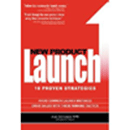Strategies for Success
Some Highlights from the SFA Management Workshop:
Selling Based on ‘Values’
The importance of establishing and following a set of core values and principles when selling was emphasized by marketing consultant Tom Richard, Waterville, Ohio, in a sales and marketing session. Richard said his sales philosophy is based on this set of values:
The importance of establishing and following a set of core values and principles when selling was emphasized by marketing consultant Tom Richard, Waterville, Ohio, in a sales and marketing session. Richard said his sales philosophy is based on this set of values:
Provide value first without expectation of return.
Trust that compensation will be in direct proportion to your service. “You can’t trick anybody.”
Make a friend at all costs – regardless of what they can do for you.
“If you want to engage your customer and stir up their motivation to buy from you, you must focus on what matters to them,” Richard said.
New Product Opportunities
Dr. John B. Lord, professor and chairperson of food marketing at Saint Joseph’s University, advised sales and marketing professionals to examine new product opportunities by analyzing consumer trends, category growth and category segmentation.
Dr. John B. Lord, professor and chairperson of food marketing at Saint Joseph’s University, advised sales and marketing professionals to examine new product opportunities by analyzing consumer trends, category growth and category segmentation.
Look externally to demographic and lifestyle data, industry surveys, business publications, category trends and growth segments, as well as at competitive activity. Travel abroad, he advised, to see what is happening in Europe and elsewhere in the world.
Look internally, too, he added, using your own market research, research and development, studying successful ideas from other brands or other markets, and using consumer hotlines and response centers.
Consider the company’s core competencies when looking at a new product, he advised, noting a need to leverage brand platforms, consumer and customer platforms, distribution and technology. Sales potential must be considered, including market size, anticipated growth rate of sales and length of the product cycle.
Factors that influence potential profitability, Lord added, include cost of entry, time needed to become established, vulnerability of competition and the potential to create product advantage.
Successful Recruiting
Stephanie Peters, Regional Vice President, SESCO Management Consultants, offered manufacturing and technology executives advice on establishing a successful recruiting program.
Stephanie Peters, Regional Vice President, SESCO Management Consultants, offered manufacturing and technology executives advice on establishing a successful recruiting program.
“You need to have a clear, crystal view of exactly what you are looking for, not ‘I’ll know it when I see it,’” she said. Those factors should include the job description, regulatory guidelines and the organization’s culture, she added.
Other advice:
Don’t confuse prospective applicants. Make certain that job responsibilities are stated clearly and the job title is relevant.
Know your labor market. Successful organizations understand the day-to-day realities of the job market.
Be careful what you ask for. If you request a salary history, be prepared to use it.
When performing an initial examination of applications, use a broader perspective. If an applicant doesn’t qualify for one position, will he or she qualify for another or be a future candidate?
Be sure to use job applications requiring signatures acknowledging that facts stated are true, not just resumes.



